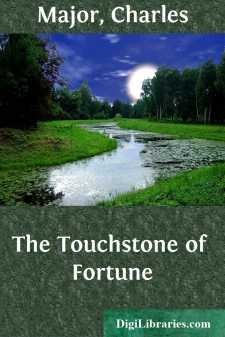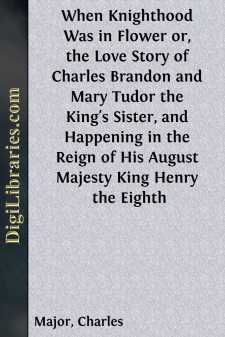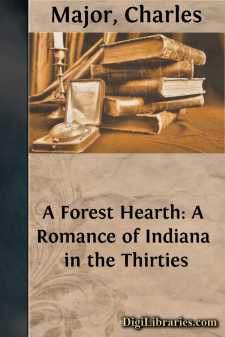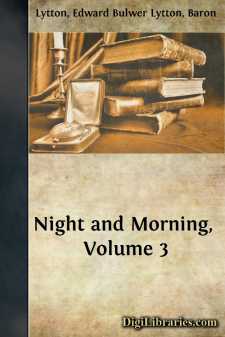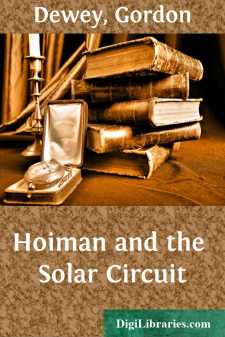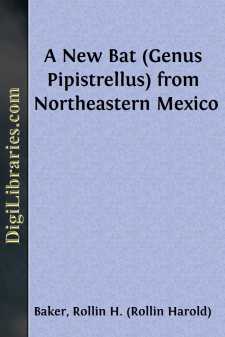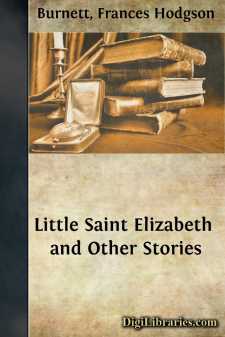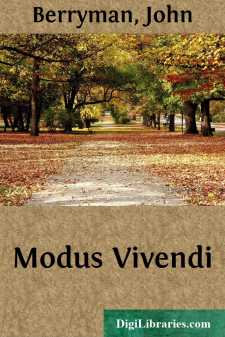Categories
- Antiques & Collectibles 13
- Architecture 36
- Art 48
- Bibles 22
- Biography & Autobiography 813
- Body, Mind & Spirit 138
- Business & Economics 28
- Children's Books 12
- Children's Fiction 9
- Computers 4
- Cooking 94
- Crafts & Hobbies 4
- Drama 346
- Education 46
- Family & Relationships 57
- Fiction 11821
- Games 19
- Gardening 17
- Health & Fitness 34
- History 1377
- House & Home 1
- Humor 147
- Juvenile Fiction 1873
- Juvenile Nonfiction 202
- Language Arts & Disciplines 88
- Law 16
- Literary Collections 686
- Literary Criticism 179
- Mathematics 13
- Medical 41
- Music 40
- Nature 179
- Non-Classifiable 1768
- Performing Arts 7
- Periodicals 1453
- Philosophy 64
- Photography 2
- Poetry 896
- Political Science 203
- Psychology 42
- Reference 154
- Religion 505
- Science 126
- Self-Help 81
- Social Science 81
- Sports & Recreation 34
- Study Aids 3
- Technology & Engineering 59
- Transportation 23
- Travel 463
- True Crime 29
Yolanda: Maid of Burgundy
by: Charles Major
Description:
Excerpt
CHAPTER I
A CASTLE AMONG THE CRAGS
Like the Israelites of old, mankind is prone to worship false gods, and persistently sets up the brazen image of a sham hero, as its idol. I should like to write the history of the world, if for no other reason than to assist several well-established heroes down from their pedestals. Great Charlemagne might come to earth's level, his patriarchal, flowing beard might drop from his face, and we might see him as he really was--a plucked and toothless old savage, with no more Christianity than Jacob, and with all of Jacob's greed. Richard of England, styled by hero-worshippers "The Lion-hearted," might be re-christened "The Wolf-hearted," and the famous Du Guesclin might seem to us a half-brutish vagabond. But Charles of Burgundy, dubbed by this prone world "The Bold" and "The Rash," would take the greatest fall. Of him and his fair daughter I shall speak in this history.
At the time of which I write Louis XI reigned over France, Edward IV ruled in England, and his sister, the beautiful Margaret of York, was the unhappy wife of this Charles the Rash, and stepmother to his gentle daughter Mary. Charles, though only a duke in name, reigned as a most potent and despotic king over the fair rich land of Burgundy. Frederick of Styria was head of the great house of Hapsburg, and Count Maximilian, my young friend and pupil, was his heir.
Of the other rulers of Europe I need not speak, since they will not enter this narrative. They were all bad enough,--and may God have mercy on their souls.
Most of the really tragic parts in the great drama of history have been played by women. This truth I had always dimly known, yet one does not really know a fact until he feels it. I did not realize the extent to which these poor women of history have suffered in the matter of enforced marriages, until the truth was brought home to me in the person of Mary, Princess of Burgundy, to whose castle, Peronne La Pucelle, my pupil, Maximilian of Hapsburg, and I made a journey in the year 1476.
My knowledge of this fair lady began in far-off Styria, and there I shall begin my story.
In times of peace, life in Hapsburg Castle was dull; in times of war it was doleful. War is always grievous, but my good mistress, the Duchess of Styria, was ever in such painful dread lest evil should befall her only child, Maximilian, that the pains of war-time were rendered doubly keen to those who loved Her Grace.
After Maximilian had reached the fighting age there was too little war to suit him. Up to his eighteenth year he had thrice gone out to war, and these expeditions were heart-breaking trials for his mother. Although tied to his mother's apron strings by bonds of mutual love, he burned with the fire and ambition of youth; while I, reaching well toward my threescore years, had almost outlived the lust for strife. Max longed to spread his wings, but the conditions of his birth held him chained to the rocks of Styria, on the pinnacle of his family's empty greatness.
Perched among the mountain crags, our castle was almost impregnable; but that was its only virtue as a dwelling-place. Bare walls, stone floors, sour wine, coarse boar's meat, brown bread, and poor beds constituted our meagre portion.
Duke Frederick was poor because his people were poor. They lived among the rocks and crags, raised their goats, ploughed their tiny patches of thin earth, and gave to the duke and to each man his due. They were simple, bigoted, and honest to the heart's core.
Though of mean fortune, Duke Frederick was the head of the great House of Hapsburg, whose founders lived in the morning mists of European history and dwelt proudly amid the peaks of their mountain home. Our castle in Styria was not the original Castle Hapsburg. That was built centuries before the time of this story, among the hawks' crags of Aargau in Switzerland. It was lost by the House of Hapsburg many years before Max was born. The castle in Styria was its namesake.
To leaven the poor loaf of life in Castle Hapsburg, its inmates enjoyed the companionship of the kindest man and woman that ever graced a high estate--the Duke and Duchess of Styria. Though in their little court, life was rigid with the starch of ceremony, it was softened by the tenderness of love. All that Duke Frederick asked from his subjects was a bare livelihood and a strict observance of ceremonious conventions. Those who approached him and his son did so with uncovered head and bended knee. An act of personal familiarity would have been looked on as high treason. Taxes might remain unpaid, laws might be broken, and there was mercy in the ducal heart; but a flaw in ceremony was unpardonable.
The boar's meat and the brown bread were eaten in state; the sour wine was drunk solemnly; and going to bed each night was an act of national importance. Such had been the life of this house for generations, and good Duke Frederick neither would nor could break away from it.
Of all these painful conditions young Max was a suffering victim. Did he sally forth to stick a wild boar or to kill a bear, the Master of the Hunt rode beside him in a gaudy, faded uniform. Fore-riders preceded him, and after-riders followed. He was almost compelled to hunt by proxy, and he considered himself lucky to be in at the death. The bear, of course, was officially killed by Maximilian, Count of Hapsburg, no matter what hand dealt the blow. Maximilian, being the heir of Hapsburg, must always move with a slow dignity becoming his exalted station. He must, if possible, always act through an officer; I verily believe that Duke Frederick, his father, regretted the humiliating necessity of eating his own dinner.
Poor Max did not really live; he was an automaton.
Once every year Duke Frederick gave a tournament, the cost of which, in entertainments and prizes, consumed fully two-thirds of his annual income. On these occasions punctilious ceremony took the place of rich wine, and a stiff, kindly welcome did service as a feast. These tournaments were rare events for Max; they gave him a day of partial rest from his strait-jacket life at the little court among the crags.
I shall give you here ten lines concerning myself. I am Italian by birth--a younger son of the noble House of Pitti. I left home when but little more than a boy. Journeying to the East, I became Sir Karl de Pitti, Knight of the Holy Order of St. John, and in consequence I am half priest, half soldier. My order and my type are rapidly passing away. I fought and prayed in many lands during twenty years. To be frank, I fought a great deal more than I prayed. Six years out of the twenty I spent in Burgundy, fighting under the banner of Duke Philip the Good, father to Charles the Rash. My mother was a Burgundian--a Walloon--and to her love for things German I owe my name, Karl. During my service under Duke Philip I met my Lord d'Hymbercourt, and won that most valuable of all prizes, a trusted friend.
Fifteen years before the opening of this story I grew tired of fighting. How I drifted, a sort of human flotsam, against the crags of Styria would be a long, uninteresting story. By a curious combination of events I assumed the duties of tutor to the small count, Maximilian of Hapsburg, then a flaxen-haired little beauty of three summers. I taught him all that was needful from books, and grounded him fairly well in church lore, but gave my best efforts to his education in arms.
Aside from my duties as instructor to the young count, I was useful in many ways about the castle. By reason of the half of me that was priestly, I could, upon occasion, hear confession, administer the holy sacrament, and shrive a sinner as effectively as the laziest priest in Christendom. I could also set a broken bone, and could mix as bitter a draught as any Jew out of Judea. So, you will see, I was a useful member of a household wherein ancestry took the place of wealth, and pride was made to stand for ready cash.
The good duke might have filled his coffers by pillaging travellers, as many of his neighbors did; but he scorned to thrive by robbery, and lived in grandiose but honest penury.
Max took readily to the use of arms, and by the time he was eighteen, which was three years before our now famous journey to Burgundy, a strong, time-hardened man might well beware of him. When the boy was fourteen or fifteen, I began to see in him great possibilities. In personal beauty and strength he was beyond compare. His eyes were as blue as an Italian sky, and his hair fell in a mass of tawny curls to his shoulders. His mother likened him to a young lion. Mentally he was slow, but his judgment was clear and accurate. Above all, he was honest, and knew not fear of man, beast, or devil. His life in Styria, hedged about by ceremonious conventions, had given him an undue portion of dignity and reticence, but that could easily be polished down by friction with the rougher side of the world. Except myself and his mother, he had never known a real friend.
To Max the people of the world were of two conditions: a very small class to whom he must kneel, and a very large number who must kneel to him. Even his mother addressed him publicly as "My Lord Count." On rare occasions, in the deep privacy of her closet, mother-love would get the better of her and break through the crust of ceremony. Then she indulged herself and him in the ravishing, though doubtful, luxury of calling him "Little Max." No one but I, and perhaps at rare intervals Duke Frederick, ever witnessed this lapse from dignity on the part of Her Grace, and we, of course, would not expose her weakness to the world.
This love-name clung to Max, and "Little Max," though somewhat incongruous, was pretty when applied to a strapping fellow six feet two and large of limb in proportion.
When the boy approached manhood, I grew troubled lest this strait-jacket existence in Styria should dwarf him mentally and morally. So I began to stir cautiously in the matter of sending him abroad into the world. My first advances met with a rebuff.
"It is not to be thought of," said the duke.
"Send the count out to the rude world to associate with underlings? Never!" cried the duchess, horrified and alarmed.
I had expected this, and I was not daunted. I renewed the attack from different points, and after many onslaughts, I captured the bailey of the parental fortresses; that is, I compelled them to listen to me. My chief point of attack was Max himself. He listened readily enough, but he could not see how the thing was to be done. When I spoke of the luxuries of Italy and Burgundy, and told him of deeds of prowess performed daily throughout the world by men vastly his inferior, his eyes brightened and his cheek flushed. When I talked of wealth to be won and glory to be achieved in those rich lands, and hinted at the barren poverty of Styria, he would sigh and answer:--
"Ah, Karl, it sounds glorious, but I was born to this life, and father and mother would not forgive me if I should seek another destiny. Fate has fixed my lot, and I must endure it."
I did not cease my lay; and especially was the fat land of Burgundy my theme, for I knew it well. Max would listen in enraptured silence. When he was eighteen, I wrote, with deep-seated purpose, several letters to my friend Lord d'Hymbercourt, who was at the time one of the councillors of Charles the Rash, Duke of Burgundy. In those letters I dwelt at length on the virtues, strength, and manly beauty of my pupil.
I knew that Charles often negotiated with other states the marriage of his only child and heiress, Princess Mary. This form of treaty appeared to be almost a mania with the rash Burgundian. I also knew that in no instance had he ever intended to fulfil the treaty. His purpose in each case was probably to create a temporary alliance with that one state while he was in trouble with another. His daughter would inherit a domain richer than that of any king in Europe, and the duke certainly would be contented with nothing less than the hand of an heir to a crown. Suitors for the fair Mary came from every land. All were entertained; but the princess remained unbetrothed.
A few broad hints in my letters to Hymbercourt produced the result I so much desired. One bright day our castle was stirred to its foundation-stones by the arrival of a messenger from Duke Charles of Burgundy, bearing the following missive:--
"To His Grace, Duke Frederick of Styria, Elector of the Holy Roman Empire, and Count of Austria; Charles, Duke of Burgundy and Count of Charolois, sends greeting:--
"The said Duke Charles recommends himself to the most puissant Duke Frederick, and bearing in mind the great antiquity and high nobility of the illustrious House of Hapsburg, begs to express his desire to bind the said noble House to Burgundy by ties of marriage.
"To that end, His Grace of Burgundy, knowing by fame the many virtues of the young and valiant Count of Hapsburg, son to His Grace, Duke Frederick, would, if it pleasures the said illustrious Duke Frederick, suggest the appointment of commissioners by each of the high contracting parties for the purpose of drawing a treaty of marriage between the noble Count of Hapsburg and our daughter, Princess Mary of Burgundy. The said commissioners shall meet within six months after the date of these presents and shall formulate indentures of treaty that shall be submitted to His Grace of Styria and His Grace of Burgundy.
"The lady of Burgundy sends herewith a letter and a jewel which she hopes the noble Count of Hapsburg will accept as tokens of her esteem.
"May God and the Blessed Virgin keep His Grace of Styria in their especial care."
Signed with a flourish. "CHARLES."
This letter did not deceive me. I did not think for a moment that Charles meant to give his daughter to Max. But it answered my purpose by bringing Max to a realization of the nothingness of life in Styria, and opening his eyes to the glorious possibilities that lay in the great world beyond the mountain peaks.
Burgundy's missive produced several effects in the household of Castle Hapsburg, though none were shown on the surface. I was glad, but, of course, I carefully concealed the reasons for my pleasure from His Grace. Duke Frederick was pleased to his toes and got himself very drunk on the strength of it. Otherwise he smothered his delight. He "was not sure"; "was not quite disposed to yield so great a favor to this far-away duke"; "the count is young; no need for haste," and so on. The duke had no intention whatever of sending such messages to Burgundy; he simply wished to strut before his little court. Charles most certainly would receive a pompous and affirmative answer. The poor duchess, torn by contending emotions of mother-love and family pride, was flattered by Burgundy's offer; but she was also grieved.
"We do not know the lady," she said. "Fame speaks well of her, but the report may be false. She may not be sufficiently endued with religious enthusiasm."
"She will absorb that from Your Grace," I answered.
Her Grace thought that she herself was religious and tried to impress that belief on others; but Max was her god. In truth she was jealous of any woman who looked on him twice, and she kept at the castle only the old and harmless of the dangerous sex. She would have refused Burgundy's offer quickly enough if her heart had been permitted to reply.
The effect of the letter on Max was tremendous. He realized its political importance, knowing full well that if he could add the rich domain of Burgundy to the Hapsburg prestige, he might easily achieve the imperial throne. But that was his lesser motive. Hymbercourt's letters to me had extolled Mary's beauty and gentleness. Every page had sung her praises. These letters I had given to Max, and there had sprung up in his untouched heart a chivalric admiration for the lady of Burgundy. He loved an ideal. I suppose most men and every woman will understand his condition. It was truly an ardent love.
Max kept Hymbercourt's letters, and would hide himself on the battlements by the hour reading them, dreaming the dreams of youth and worshipping at the feet of his ideal,--fair Mary of Burgundy, his unknown lady-love.
Before the arrival of the messenger from Duke Charles, Max spoke little of the Burgundian princess; but the message gave her a touch of reality, and he began to open his heart to me--his only confidant.
There seemed to have been a reciprocal idealization going on in the far-off land of Burgundy. My letters to Hymbercourt, in which you may be sure Max's strength and virtues lost nothing, fell into the hands of Madame d'Hymbercourt, and thus came under the eyes of Princess Mary. That fair little lady also built in her heart an altar to an unknown god, if hints in Hymbercourt's letters were to be trusted. Her maidenly emotions were probably far more passive than Max's, though I have been told that a woman's heart will go to great lengths for the sake of an ideal. Many a man, doubtless, would fall short in the estimation of his lady-love were it not for those qualities with which she herself endows him.
Whatever the lady's sentiments may have been, my faith in Hymbercourt's hints concerning them were strengthened by Mary's kindly letter and the diamond ring for Max which came with her father's message to Styria. They were palpable facts, and young Max built an altar in his holy of holies, and laid them tenderly upon it.
Duke Frederick, with my help, composed a letter in reply to Burgundy's message. It required many days of work to bring it to a form sufficient in dignity, yet ample in assent. The missive must answer "yes" so emphatically as to leave no room for doubt in Burgundy's mind, yet it must show no eagerness on the part of Styria. (Duke Frederick always spoke of himself as Styria.) Burgundy must be made to appreciate the honor of this alliance; still, the fact must not be offensively thrust upon him.
The letter was sent, and Charles of Burgundy probably laughed at it. Duke Frederick appointed commissioners and fixed Cannstadt as the place of meeting. Whatever Duke Charles's reasons for making the offer of marriage may have been, they probably ceased to exist soon afterward, for he never even replied to Duke Frederick's acceptance. For months Castle Hapsburg was in a ferment of expectancy. A watch stood from dawn till dusk on the battlements of the keep, that the duke might be informed of the approach of the Burgundian messenger--that never came. After a year of futile waiting the watch was abandoned. Anger, for a time, took the place of expectancy; Duke Frederick each day drowned his ill-humor in a gallon of sour wine, and remained silent on the subject of the Burgundian insult.
Max's attitude was that of a dignified man. He showed neither anger nor disappointment, but he kept the letter and the ring that Mary had sent him and mused upon his love for his ideal--the lady he had never seen.
A letter from Hymbercourt, that reached me nearly two years after this affair, spoke of a tender little maiden in Burgundy, whose heart throbbed with disappointment while it also clung to its ideal, as tender natures are apt to do. This hint in Hymbercourt's letter sank to the tenderest spot in Max's heart.
On Max's twenty-first birthday he was knighted by the emperor. A grand tournament, lasting five days, celebrated the event, and Max proved himself a man among men and a knight worthy of his spurs. I had trained him for months in preparation f



